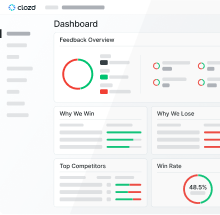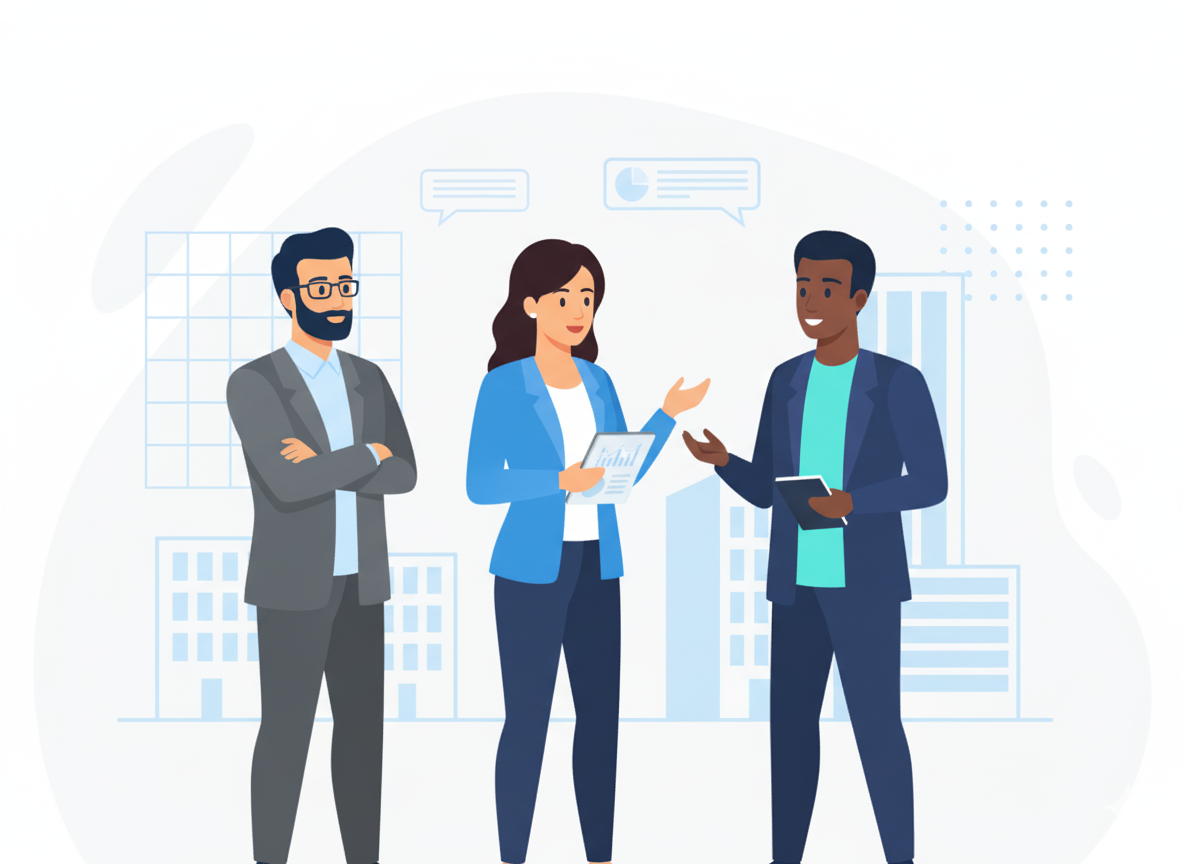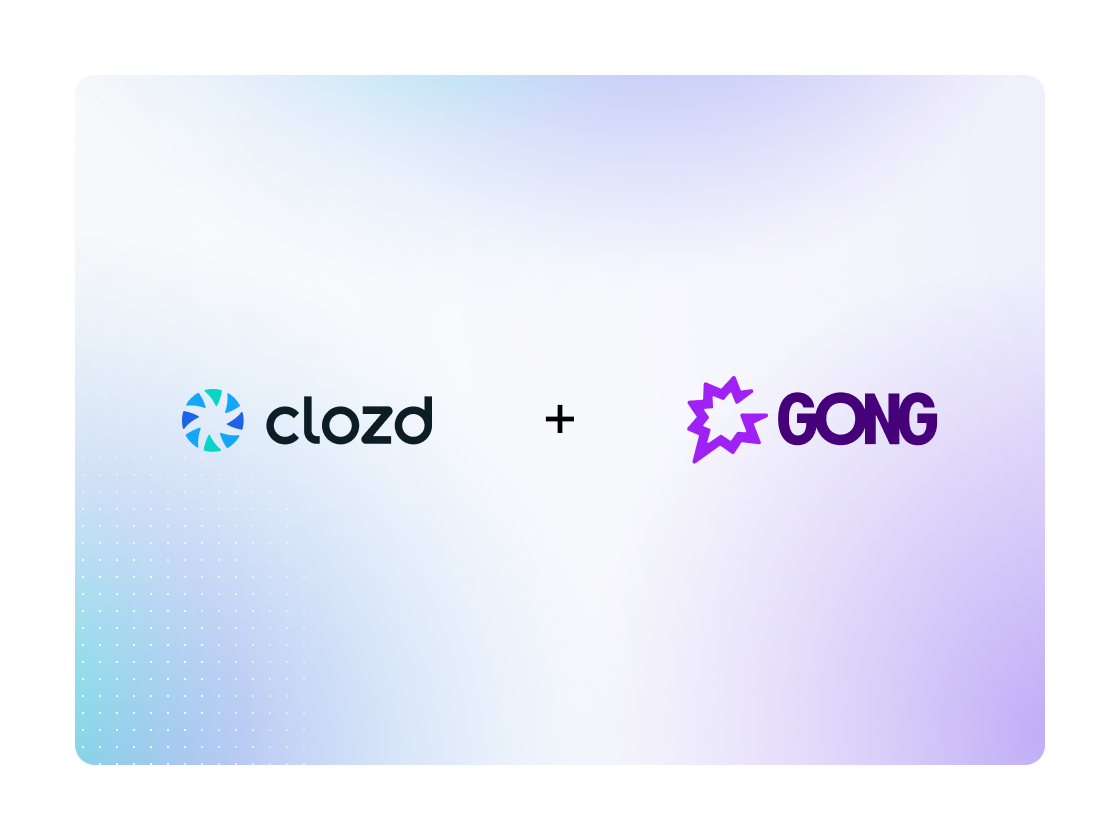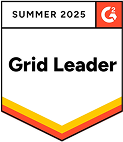
During a recent webinar, Clozd interviewed 3 highly successful Competitive Intelligence professionals about the bankable value-adds of a third-party win-loss interview program.
”Win-loss is a really good way for a competitive intelligence professional to add value and propagate their findings and insights across the company.”
Josh Parenteau
Former Director of Market Intelligence
Tableau

Director of Market Intelligence
Tableau

Competitive Intelligence
Zuora

Group Product Marketing Mgr
VMware
First, they capture the big picture.
Josh explains that for his team, “incomplete evidence around why we lose used to be our biggest gap.” Traditional CRM data and sales interviews don’t capture a comprehensive or accurate picture of sales performance. Implementing a qualitative, third-party interview program can turn that around.
“Win-loss interviews provide a fuller picture of the drivers for both wins and losses,” Josh explains. Trusted, firsthand intel from buyers uniquely illustrates the customer journey from start to finish. When disseminated across competitive intelligence teams, product managers, and the sales organization, such insights are gold and help an organization assess where it is truly at.
Second, they highlight valuable market trends.
“The value is looking at the trends,” says Ben at VMware. A robust interview program collects enough data across interviews to isolate trends in the market. When these insights are passed up to senior leadership, executives can make better informed decisions to implement strategy, refine sales training, and direct the organization towards success. Just knowing what’s going on in the market “uncovers crucial facets of product, go-to market, and sales.”
Third, they uncover actionable insights.
Yvette’s goal for win-loss was “to build and improve on the intel that we had” and “dig deeper to get the level of insight you can only get when you talk directly to your customers.” Nothing compares with engaging directly with the buyer. Candid conversations can pinpoint specifically what went wrong or right in a deal. Leveraging a third party to glean even more uncensored feedback is the best bet for snagging those nuanced, precise, and instantly actionable insights.
Fourth, they help you gain exposure to senior management.
Ben lays it out: “win-loss is a great endeavor to take on because it situates you as a catalyst for information that your company may not be getting otherwise. It makes a big difference. It gives you exposure up the management chain. This type of information goes right up to senior management.”
Information from win-loss interviews are valuable nuggets for key decision-makers. Ben advocates championing this program in your organization “for your own career growth,” citing “it pays back at the end because it’s value back to the business.” Any employee seeking to support and grow the business will benefit from being the gatekeeper to such precious consumer data.
Fifth, they help you win stakeholder buy-in.
Yvette shared, “It's about hearing firsthand from our customers why we win and why we lose. You want stakeholders to buy into the program by letting them know that. At the end of the day, it’s about communicating that value.”
Insight gained from a win-loss program ultimately serves the broader organization. This key intel can drive change that touches each branch of the organization - from sales, product, and marketing to C-suite, stakeholders, and eventually consumers. Stakeholders want to know what’s going on, and they want to see organizations that know what’s going on. Build confidence in your organization from the inside out. Get accurate consumer data. Inform leadership. Impress stakeholders. Please customers. Rinse, repeat.
In summary, win-loss interviews . . .
- Capture the big picture.
- Highlight valuable market trends.
- Uncover actionable insights.
- Help you gain exposure to senior management.
- Help you win stakeholder buy-in.
Note that the speaker roles and organizations listed above refer to their respective roles at the time of the webinar. To hear the full interview with Josh Parenteau, Ben Scheerer, and Yvette Ross, click here:
Looking to implement win-loss interviews at your own organization? Clozd can help.
Activate the value of a win-loss interview program today. Learn more about how to start your win-loss interview program here.











.svg)











.svg)

.svg)




